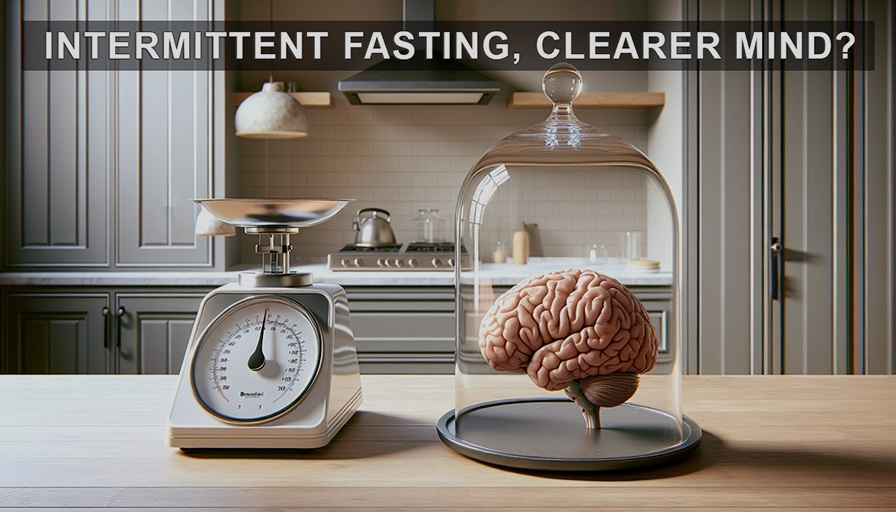
Few wellness trends have captured as much attention as intermittent fasting. From Silicon Valley executives to everyday fitness enthusiasts, people praise it for boosting energy, sharpening focus, and cutting brain fog. Stories abound of sharper mornings, better problem solving, and calm, laser like attention while fasting. But how much of this is grounded in research, and how much rests on placebo or hype?
Contents
What Intermittent Fasting Actually Is
Intermittent fasting is not a single diet but a timing pattern for eating. Common versions include the 16:8 approach (fast for 16 hours, eat within 8), alternate day fasting, or the 5:2 schedule (five days of normal eating, two days of calorie restriction). The goal is not necessarily fewer calories overall, but a shift in how the body cycles between fed and fasted states. These rhythms may influence hormones, metabolism, and, importantly, brain chemistry.
The Promised Cognitive Benefits
- Sharper focus: Supporters often describe heightened alertness after skipping breakfast, claiming mental clarity peaks in the fasting window.
- Better long term brain health: Some point to animal studies linking fasting with improved neuroplasticity and resilience against neurodegenerative diseases.
- Stable energy: By avoiding blood sugar spikes, fasting may reduce mid afternoon slumps or fogginess.
- Emotional steadiness: A few people report calmer moods during fasting, though results vary widely.
What the Science Says
Research on fasting and cognition in humans is still relatively young. Here is what the evidence currently supports:
Short Term Clarity May Be Real for Some
Several studies show that mild ketosis and increased norepinephrine during fasting can lead to temporary alertness. It resembles the focused state you might feel after black coffee on an empty stomach. However, not everyone experiences this boost, and those who are sensitive to hunger may feel distracted instead of focused.
Long Term Neuroprotection Is Promising but Early
Animal research suggests fasting may increase brain derived neurotrophic factor (BDNF), a protein linked with learning and resilience. Rodent models also hint at protection against Alzheimer’s and Parkinson’s like damage. In humans, small pilot trials show potential but not conclusive results. We need more large scale, long term studies before firm claims can be made.
Metabolic Improvements Can Support Cognition Indirectly
Fasting often leads to lower insulin resistance, reduced inflammation, and better cardiovascular health. All of these indirectly support the brain. Clearer thinking in some fasters may reflect these systemic benefits rather than fasting itself being a direct cognitive enhancer.
Individual Response Varies Dramatically
Some thrive with mental clarity while fasting, others feel irritable, fatigued, or foggy. Genetics, sleep quality, stress levels, and activity all shape how a person responds. One size does not fit all.
Where Hype Outruns Evidence
- IQ boosting claims: There is no evidence that fasting raises intelligence.
- Guaranteed productivity gains: Fasting can enhance focus for some, but it is not a universal productivity hack.
- Disease prevention promises: While rodent research looks hopeful, we cannot say fasting alone prevents neurodegenerative diseases in humans.
- Fasting equals biohacking mastery: It is a tool, not a miracle. Context matters.
Practical Considerations
For those curious about fasting as a cognitive aid, here are some guidelines:
- Start with gentle schedules like 12:12 or 14:10 before jumping into longer fasts.
- Stay hydrated, since dehydration can mimic brain fog.
- Use black coffee or tea if tolerated, but avoid sugar filled drinks during fasts.
- Pay attention to sleep, since fasting cannot compensate for chronic sleep debt.
- Break fasts with balanced meals that include protein, fiber, and healthy fats to avoid energy crashes.
How Nootropics May Complement Fasting
Supplements designed for brain health can potentially pair well with fasting. Mind Lab Pro, for instance, includes compounds studied for memory, focus, and stress resistance. Ingredients like citicoline and L theanine may help sustain focus, while lion’s mane mushroom supports long term neural growth. Taking such supplements alongside a fasting routine could, in theory, smooth the ups and downs of energy and mental clarity.
It is important to remember that nootropics work best as part of a balanced system. If fasting leaves you constantly distracted, supplements cannot erase that. But if fasting suits you, the right nootropic stack may enhance the clarity you already notice.
Other Proven Paths to Mental Clarity
Whether or not fasting works for you, don’t forget other reliable tools:
- Regular aerobic exercise improves attention and memory.
- Quality sleep strengthens focus and emotional balance.
- Stress management practices, like mindfulness or journaling, reduce distraction.
- Learning new skills challenges the brain in deeper ways than timing food windows.
The Bottom Line
Intermittent fasting may bring mental clarity to some, mainly through short term neurochemical changes and indirect health improvements. The hype often runs ahead of the data, especially for disease prevention and IQ claims. If fasting makes you feel focused and energized, it can be a useful tool. If not, you are not missing out on the only path to sharp thinking. Pairing fasting with nootropics like Mind Lab Pro and a strong lifestyle foundation may help you get the best of both worlds.

